Ryan Hall's Blog, page 327
November 3, 2015
Ultrarunners Complete Chicago Marathon to NYC Marathon Journey
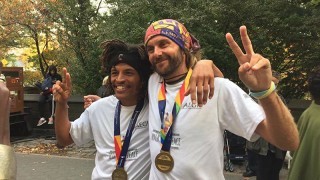
Alex Ramsey (left) and Patrick Sweeney after the New York City Marathon. Photo courtesy of Patrick Sweeney.
The plan sounded ambitious—run the Chicago Marathon, then run to New York City and run the New York City Marathon. It was a cross-country run totaling 850 miles with a hard deadline.
Patrick Sweeney and “Barefoot” Alex Ramsey went for it. And they did it.
The two had 21 days to get from Chicago to New York City, running a marathon at both ends. That’s more than 40 miles of running a day.
Not only did the two get to the start line of the New York City Marathon on time, they then went out and ran solid races to wrap up their challenge. Sweeney finished the New York City Marathon in 2:57:05 running in sandals, while Ramsey finished in 3:10:02, running barefoot.
Sweeney and Ramsey did the run as a U.S. leg of the Champions Walk for Peace, which was set up to bring awareness to ethnic violence in Kenya’s North Rift Valley. The day after the New York City Marathon, Ramsey and Sweeney symbolically passed the Walk for Peace torch to elite marathoner Wilson Kipsang, one of the co-founders of the Champions Walk for Peace, at the United Nations headquarters in Manhattan.
They are still accepting donations at W4P.org.
Sweeney and Ramsey certainly had the resume to take on such a challenge. Sweeney is a 2:37 marathoner who says he runs about 20 ultramarathons a year on average. Ramsey, meanwhile, has qualified for the Boston Marathon running barefoot, and has run the Leadville Trail 100 among other high-profile ultras.
The post Ultrarunners Complete Chicago Marathon to NYC Marathon Journey appeared first on Competitor.com.
Photos: Arizona’s Javelina Jundred Trail Running Races
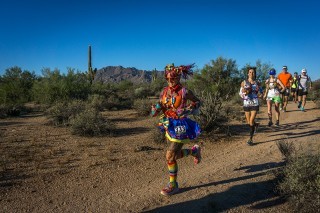
Aravaipa Running’s Javelina Jundred 100-mile and 100K trail running races at McDowell Mountain Regional Park in Fountain Hills, Ariz., send runners through an amazing Sonoran Desert landscape on singletrack trails with Saguaro cactus, granite boulders and dry wash-beds aplenty.
Paul Giblin of the UK dominated the 100-mile race, winning in 13:49:17, narrowly missing Hal Koerner’s 2011 course record. Meanwhile, Devon Yanko of San Anselmo, Calif., obliterated the women’s 100-mile course record with an eye-popping 14:52:06 effort. “Overall it was awesome,” said race director Jamil Coury. “Good weather and some incredible performances! Devon was unreal out there! We had a DJ at the start/finish and everyone seemed to have a great time.”
Here are some of the scenes of this year’s event from photographers Melissa and Deron Ruse of Sweet M Images. For full results, go to aravaiparunning.com.
Photo Gallery
1 of {count}
Back to Start
View Larger Image
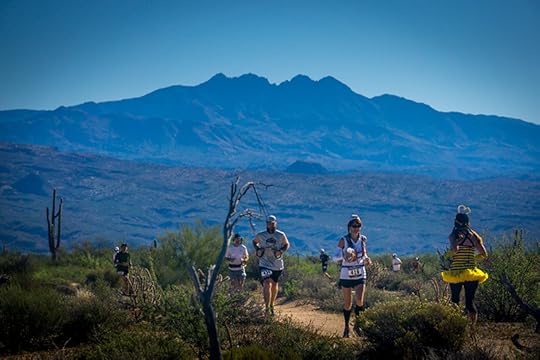
Susan Collins-Pulick, 52, of Oak Ridge, Tenn., and Clint Welch, 38, of Carmichael, Calif., grind out the miles and take in the views in the 100-mile run. More than 500 runners registered for the Javelina Jundred 100-mile race this year (making it the second-largest 100-miler in the U.S.) and another 138 ran in the 100K race.
View Larger Image

Wonder Woman, aka, Alicia Judy, 45, of Cave Creek, Okla., cruises along on her way to a 27:10:43 finish in the 100-miler. Given that this year's 13th annual event was held over Halloween weekend and the race director Jamil Coury encouraged "Jalloween" and Day Of the Dead themes, many runners ran in seasonally appropriate race kits.
View Larger Image

Prolific 100-mile runner Catra Corbett dresses up in colorful race kits everywhere she goes, but her Halloween-inspired get-up was still pretty remarkable. Corbet, 50, of Freemont, Calif., finished the 100-miler in 27:53:16, placing 201st overall and 54th among women.
View Larger Image
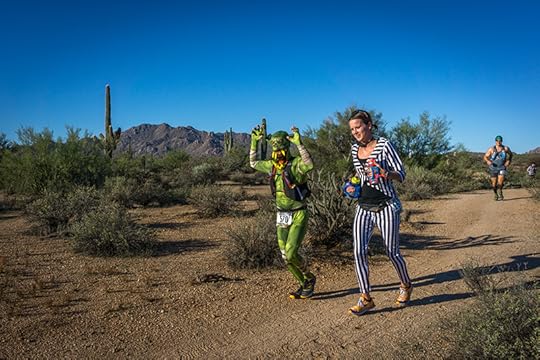
Jordan Camastro, 32, of Tucson, Ariz., and Erin Dial, 28, of Tucson, Ariz., looked like they were ready for trick-or-treating during the 100-miler.
View Larger Image
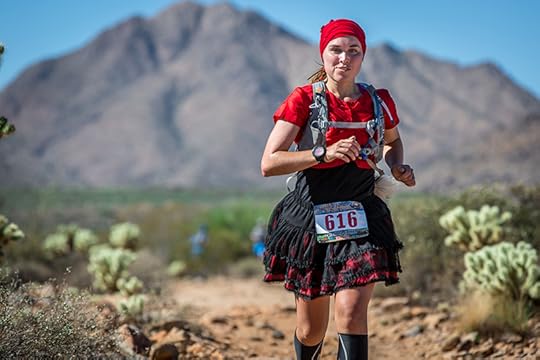
Breanna Cornell, 23, of Florence, Ala., was fifth among women in the 100K in 12:42.
View Larger Image

Suzanna Guadarrama, 27, from Hollywood, Calif., was the 12th fastest woman (22:33:38) in the 100-miler, but we don't think she wore this costume the entire way.
View Larger Image
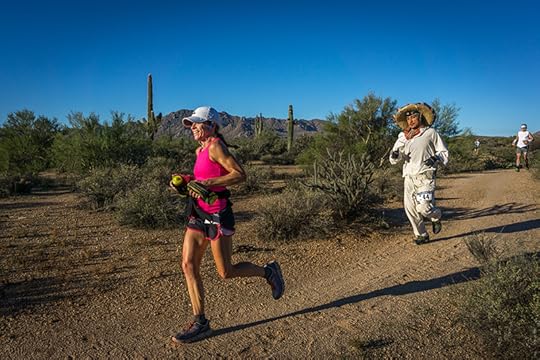
Tracy Dimino, 44, of Ramona, Calif., stays a few strides ahead of Gean Ivan Dagnino, 40, of Mexico in the 100-miler. Dimino finished third among women (20:10:24), while Dagnino was 55th overall and 46th among men (22:16:03)
View Larger Image
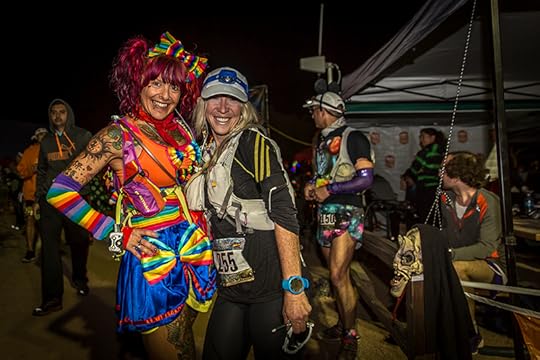
Catra Corbet and Lisa Kravetz, 52, of Scottsdale, Ariz., ham it up for a photo opp.
View Larger Image
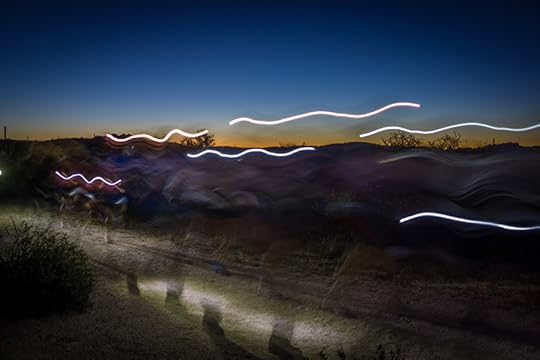
Runners' headlamps dance along the horizon with the setting sun over the Sonoran landscape.
View Larger Image
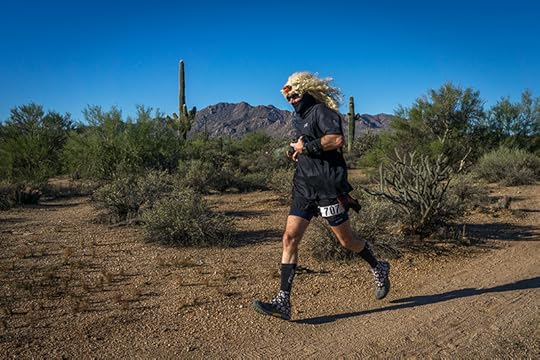
David Bliss, 53, of Phoenix, is having a bad hair day en route to a 27:52:41 finish in the 100-miler.
View Larger Image
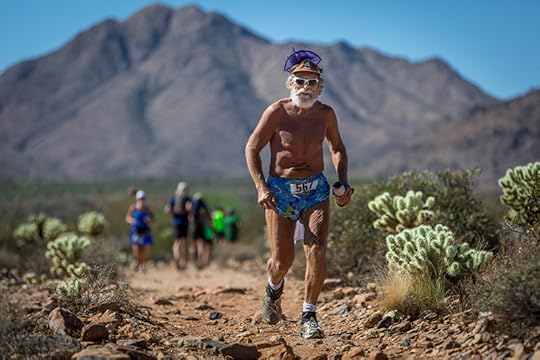
That's Gordy Ainsleigh, 68, of Meadow Vista, Calif., dressed up like the ultra legend he is during the 100-miler.
View Larger Image

Elycia Bechard, 27, of Ashland, Ore., and Eric Compton, 36, of Los Angeles rack up the miles.
View Larger Image
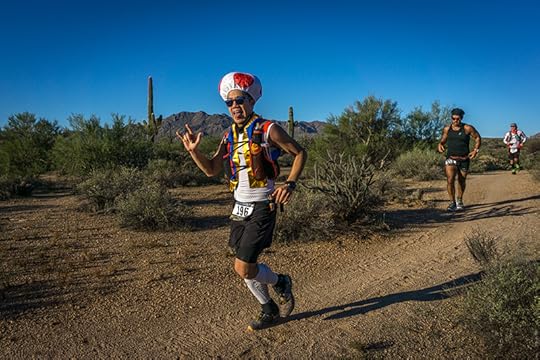
Leo Fung, 25, of Calgary, having fun on his way to a 25:25:24 finish in the 100-miler.
View Larger Image
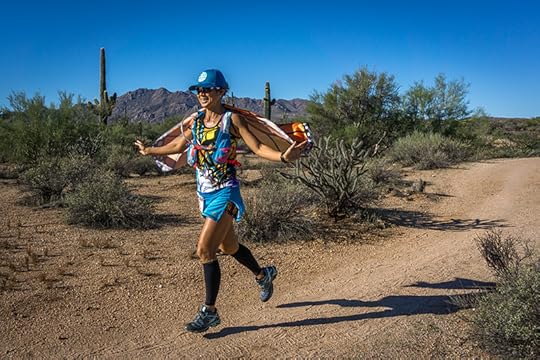
Shinano Hazlett, 48, of Cardiff, Calif., floats like a butterfly through the 100K course, eventually finishing 11th among women in 14:40:03.
View Larger Image

Um ... Brian Tinder from Flagstaff, Ariz., does his best Borat impersonation in the 100-miler. No place to pin a race bib onto that pair of shorts, huh?
View Larger Image
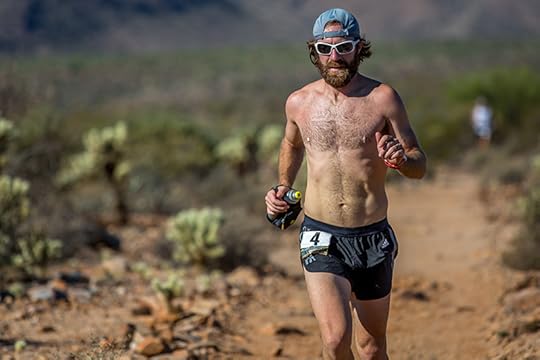
Here's Brian Tinder wearing a lot more clothing.
View Larger Image

Vasile Samartinean, 40, of Surprise, Ariz., on his way to a 13th-place finish (10th among men) in the 100K (11:57:23).
View Larger Image
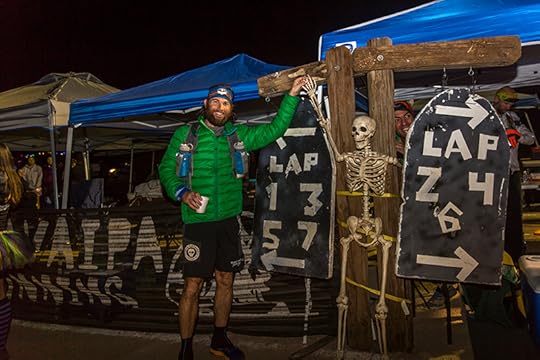
Here's Peter Kleuser, 38, from Nashville, Tenn, hanging out at the lap turnaround point, where runners switched directions. Kleuser finished the 100-mile race in 23:49.
View Larger Image
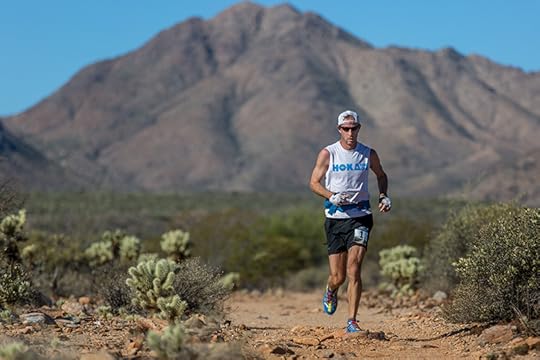
Karl Meltzer, the winningest 100-miler runner in the world, turned in another strong effort and finished sixth overall in this one (16:31:02).
View Larger Image
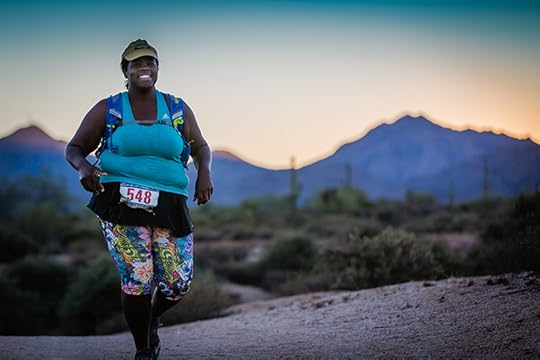
Mirna Valerio, 40, of Rabun Gap, Ga., finishes the 100-miler in 25:59:55.
View Larger Image
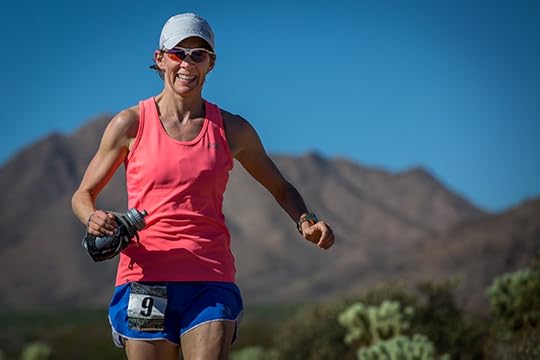
Stacey Cleveland, 37, of Penticton, BC, Canada, is all smiles on the way to a ninth-place finish among women in the 100-miler (21:48:26).
View Larger Image

Still life with a cactus in the setting son. Not much needs to be said about this one.
View Larger Image
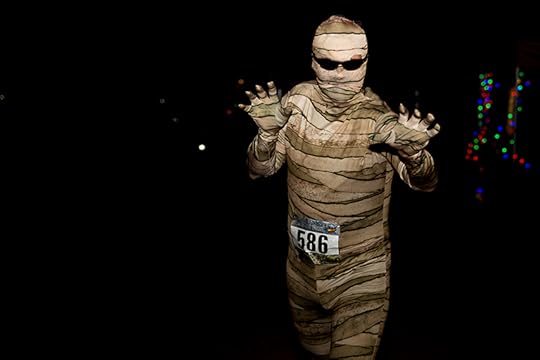
Don't be frightened, that's really just Jakob Herrmann, 44, of Yorba Linda, Calif., at some point on his way to a 27:22:44 finish in the 100-miler.
View Larger Image

Paul Giblin, 38, of the UK, was the overall winner, as he stormed the course in 13:49:18 to win by more than an hour. He finished about 90 seconds off of Hal Koerner's 2011 course record.
View Larger Image
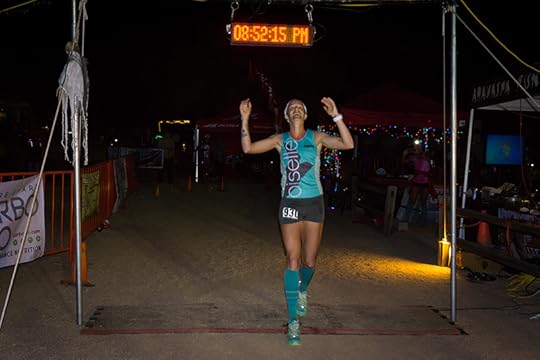
Devon Yanko, 33, of San Anselmo, Calif., had an amazing race and broke the year-old course record held by Kaci Lickteig by 48 minutes. Yanko finished second overall in 14:52:06, four and a half hours ahead of the second-place woman.
View Larger Image

Karim El Hayani, 21, of Seattle, dominated the 100K race, winning in 9:29:14.
View Larger Image

Is this the most organized (and colorful) drop-bag system in the world?
View Larger Image
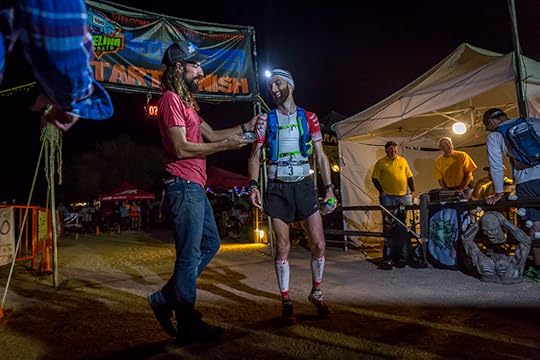
Race director Jamil Coury congratulates Paul Giblin after he won the 100-mile run in near-record time. The Jundred will be a "future" race for the Ultra Trail World Tour next year, which should bring more international competitors.

More Galleries
The post Photos: Arizona’s Javelina Jundred Trail Running Races appeared first on Competitor.com.
ESPN To Broadcast TrackTown Summer Series In 2016
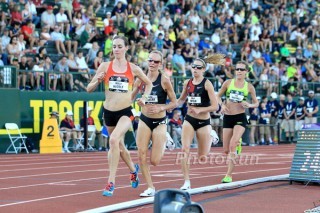
ESPN and TrackTown USA have agreed to a multi-year agreement to televise the launch of the TrackTown Summer Series beginning in 2016.
The TrackTown Summer Series—an idea which first surfaced with a trio of High Performance meets at Hayward Field (2006, 2007, 2008) leading up to the 2008 U.S. Olympic Trials and was followed by the highly successful Run TrackTown High Performance meet held in conjunction with the 2014 IAAF World Junior Championships—is a new domestic circuit of scored track and field meets featuring competition between top teams of elite athletes in cities on both the East and West coasts. The Series will culminate with a championship meet at historic Hayward Field on July 29, to be televised on ESPN or ESPN2.
“This is outstanding news for our sport,” TrackTown USA President and 2016 U.S. Olympic men’s head track & field coach Vin Lananna said. “We look forward to continuing to explore fresh and creative ways to spark interest in track and field in the U.S. We are excited about providing expanded competitive opportunities in the U.S. during the summer for our high-end athletes as they peak for major global championships. This kind of national exposure is hugely valuable for our athletes, fans and the entire sport.”
The TrackTown Summer Series was designed to give American track and field athletes world-class competitive opportunities on U.S. soil during the summer, something that has alluded them in years past and forced them to compete on the robust European track circuit. The agreement with ESPN will shine a spotlight on those athletes and provide viewers with a spectator-friendly window to watch their extraordinary performances.
“ESPN is proud to work with TrackTown USA and to televise the new TrackTown Summer Series, which will showcase some of the best athletes in the sport,” added Doug White, ESPN senior director of programming and acquisitions.
Allyson Felix, one of the most decorated female sprinters of all-time, was enthusiastic in her praise of both the TrackTown Summer Series and the broadcast agreement with ESPN.
“I am always looking for great ways to connect and engage with the fans of track and field,” Felix said. “To be able to do that at home is incredibly special and I’m excited to see more track televised in the U.S.”
The post ESPN To Broadcast TrackTown Summer Series In 2016 appeared first on Competitor.com.
The Evolution of the Marathon’s Fastest Men
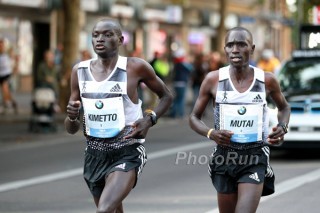
Photo: PhotoRun.net
This is an excerpt from TWO HOURS by Ed Caesar. Copyright © 2015 by Ed Caesar. Reprinted by permission of Simon & Schuster, Inc, NY.
Geoffrey Mutai had no doubt that running 26 miles and 385 yards in less than two hours was physically possible. The performance, he believed, was within his own body. What stopped marathoners from running faster, he believed, was not so much the structure of their bodies as the structure of races. There was no point thinking about the two-hour marathon when you saw how the sport existed in 2012—namely, a few exceptional athletes lined up twice a year in a great world city, barreling 26.2 miles through the streets.
Occasionally, at night in his mountain hideaway, Mutai would fantasize about how the sport might evolve so that it became more about the limits of physiology than about winners and losers. He knew that in the right set of circumstances, people could run so much faster.
For a niche sport like professional marathon running, record times at a Sunday marathon are sometimes the only way to generate a Monday headline. So, between the organizers, the athletes, and Mutai’s manager, a plan was drawn up for the 2012 Berlin Marathon. The pacemakers were to take the lead pack through the halfway mark in 61 minutes and 30 seconds. If all went according to schedule, Mutai would finish the race in an “even” split (for exactly two hours and three minutes), or he would run the second half faster than the first for a “negative” split of 2:02 and change.
To a marathon runner of almost any standard, these numbers are enough to provoke nightmares. For an elite competitor, one’s predicted halfway split time is significant because it is a marker of what one hopes to achieve in the race. The marathon is, at its highest level, a delicate exercise in expending energy evenly over the entire course, and the fastest times are generally achieved when the second half of the race is run at the same speed (an “even” split) as, or slightly faster (a “negative” split) than, the first. Sudden rises or dips in pace can kill a record attempt stone dead. At many marathons, race organizers employ pacemakers, or “rabbits”—other athletes who for reasons of schedule, finance, or talent are paid a few thousand dollars each to run only a limited section of the race—to ensure that the lead athlete’s desired pace is adhered to, and to offer some protection against the wind. The rabbits are generally paid by distance: some will travel to halfway, some to 25km, and the strongest to 30km or 32km. From there, the racers are on their own.
RELATED: A Sub-2-Hour Marathon? It Could Happen Sooner Than You Think
At the prerace technical meeting in a drab conference room at Berlin’s Maritim Hotel, at noon on the day before the marathon, it was confirmed that Mutai had asked the rabbits to take him through halfway in 61:30. No athlete in the history of the sport had ever asked for such a fast split, but the other Kenyans in the room didn’t flinch. At least four of them felt confident that they could run 61:30 for the first half and still finish strong. However, when Jan Fitschen—an affable German marathon runner in the twilight of a career in which he had won, among other honors, the European 10,000m gold medal—was asked about the split Mutai had requested, he made an unfamiliar sound, somewhere between a giggle and a cough. A few minutes later, when the meeting was finished, he walked away shaking his head and laughing. Fitschen hoped to run the first half of the race in 67 minutes.
Ten years earlier, running the first half in 62 minutes and 30 seconds was considered suicidal. When Haile Gebrselassie ran his first marathon in London, in 2002, he asked the pacemakers for this very split—62:30—to widespread amazement. There was a belief that if a runner, even one as talented as Gebrselassie, were to start so fast, he would inevitably “blow up” in the second half of the race as his energy reserves dwindled and lactic acid flooded his muscles. A 62:30 split, it was thought, was a sure and painful way to lose money.
One of Haile’s competitors for the 2002 London Marathon was the world record holder Khalid Khannouchi, who was raised in Morocco and became an American citizen in 2000. When Khannouchi’s wife, Sandra, heard about the split Haile had proposed, she was apparently so incensed that she made a noisy demonstration of her feelings at the prerace technical meeting. There was no way, she said, that her husband would be joining this idiotic early pace. But come halfway, Khannouchi was with Haile and the other challenger, Paul Tergat—and evidently the pace did not finish him off. He went on to win the race and break the world record in 2:05:38.
Strange things had happened to professional marathon running since 2002. Not only had two minutes fallen from the world record, but the distance appeared to have changed genre. By 2012, the elite no longer considered the marathon a pure endurance event. It was a speed-endurance event. The world’s best had, in the words of the American commentator Toni Reavis, “out-trained the distance.” To explain the difference, many of the most experienced coaches used an automotive analogy. It used to be the case that marathon runners needed a diesel engine. Now the best had turbo-diesels. They were capable of both doughty endurance and devastating pace.
This is an excerpt from TWO HOURS by Ed Caesar. Copyright © 2015 by Ed Caesar. Reprinted by permission of Simon & Schuster, Inc, NY.
The post The Evolution of the Marathon’s Fastest Men appeared first on Competitor.com.
November 2, 2015
9 Must-Do Turkey Trots Across the Nation
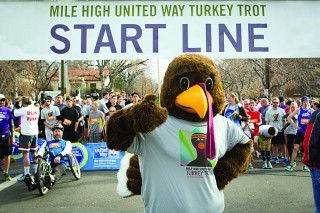
Mile High United Way Turkey Trot
You can find an event pretty much anywhere on the busiest race day on the calendar—Thanksgiving. Yes, turkey trots are everywhere, as people enjoy burning a few calories before hunkering down for a feast. We offer nine of our favorites here, but you can find one close to you on our race calendar. Happy racing … and eating!
Dana Point Turkey Trot
Nov. 26; Dana Point, Calif.
This 38th annual event is a lot more than your traditional neighborhood turkey trot, routinely drawing more than 11,000 runners. The event features a health and wellness expo the day before, then a 10K, 5K, 5K Masters and kids’ run on Thanksgiving Day. There’s even a costume contest for those who want to run as a turkey.
Silicon Valley Turkey Trot
Nov. 26; San Jose, Calif.
This is one of the largest turkey trot races in the country, offering something for everyone. It features an elite 5K invitational with a $25,000 prize purse for the fastest runners, as well as a 5K and 10K run/walk for those looking to burn Thanksgiving calories. An additional costume contest and plenty of kids’ races make this a
family-friendly event in downtown San Jose.
Naperville Noon Lions Turkey Trot
Nov. 26; Naperville, Ill.
The 18th annual event in this western Chicago suburb has grown to be the biggest turkey trot in the state, with 7,500 participants every year. The neighborhood course starts and finishes at Naperville Central High School and attracts a range of runners, walkers and costumed participants. Spoil your appetite with the post-race pancake breakfast.
RELATED: 5 Things You Didn’t Know About Turkey Trots
The post 9 Must-Do Turkey Trots Across the Nation appeared first on Competitor.com.
Photos: Inside the New York City Marathon
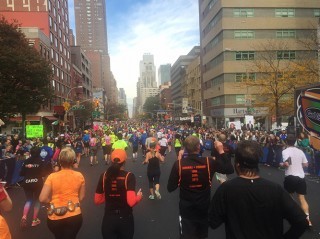
Competitor senior video producer Steve Godwin ran the New York City Marathon on Sunday and took his GoPro along for the fun. What he captured was an intimate look at what makes the race so great—the runners moving through the five boroughs, the spectators cheering them on, the sights of America’s largest city, and the block party that stretches for 26.2 miles with numerous cultures celebrating the event and the runners.
Here’s a look at the 2015 New York City Marathon from the point of view of one runner.
Photo Gallery
1 of {count}
Back to Start
View Larger Image

Boarding to buses to Staten Island.
View Larger Image

On the buses.
View Larger Image
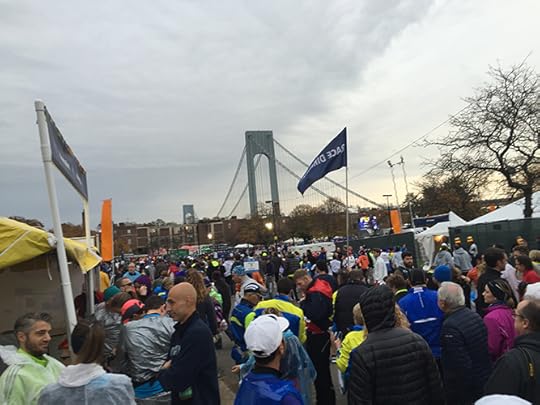
Once in Staten Island, you stay warm and get ready to run.
View Larger Image

Runners finding a comfortable spot and getting off their feet.
View Larger Image
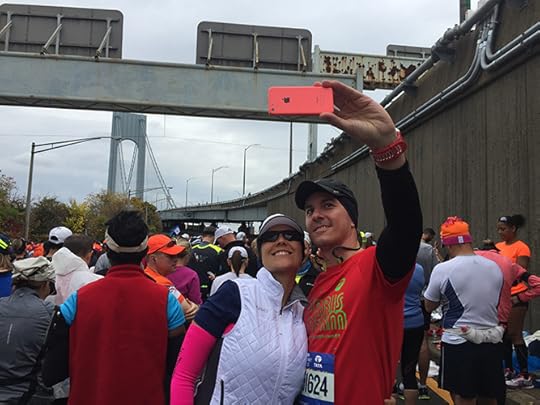
Pre-race selfie.
View Larger Image
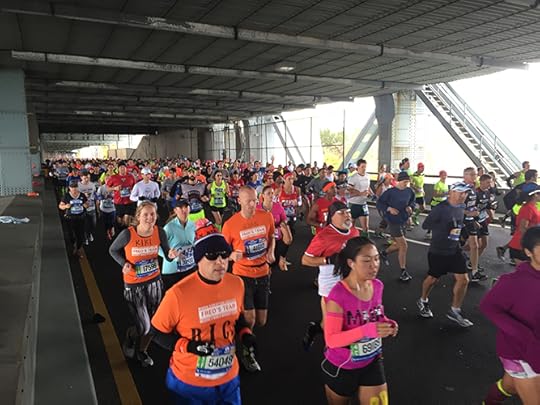
The elites run on the upper level (which everyone sees on TV), but many runners are on the lower deck of the Verrazano Narrows Bridge.
View Larger Image
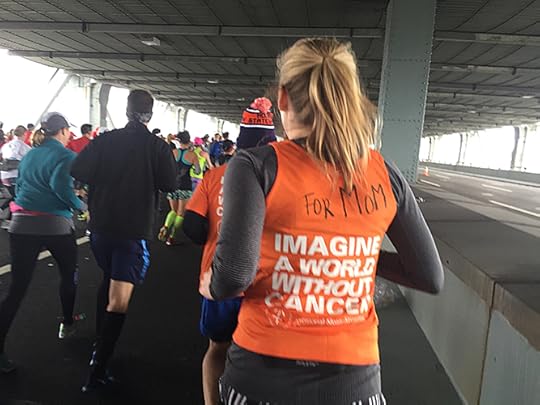
Lots of runners use their apparel to relate a message.
View Larger Image
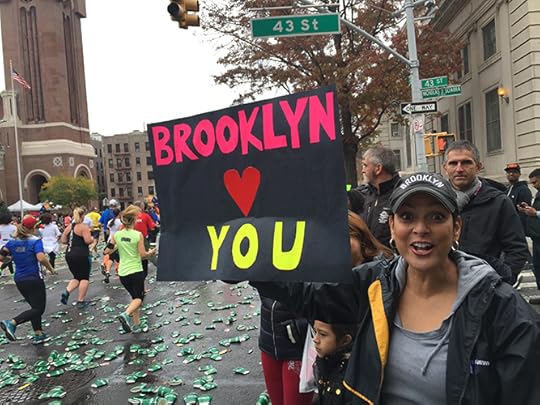
In Brooklyn.
View Larger Image

Brooklyn
View Larger Image
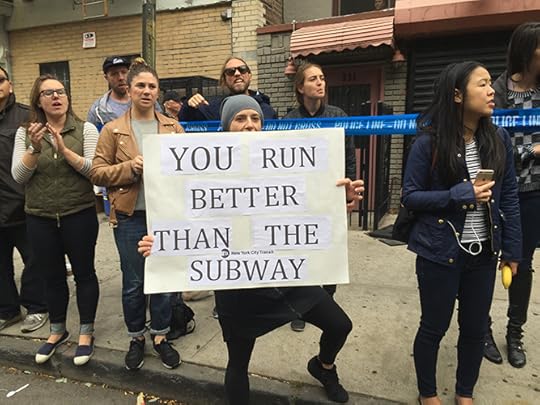
Funny signs all over the course.
View Larger Image
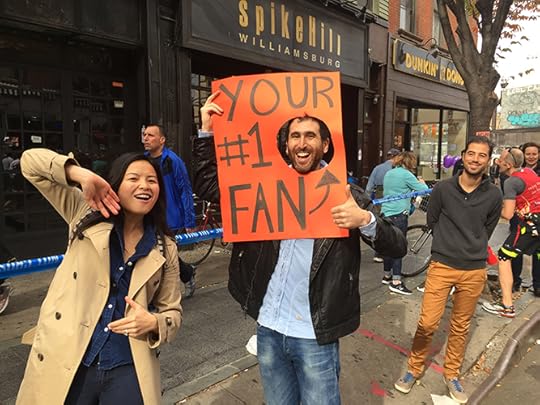
View Larger Image

View Larger Image
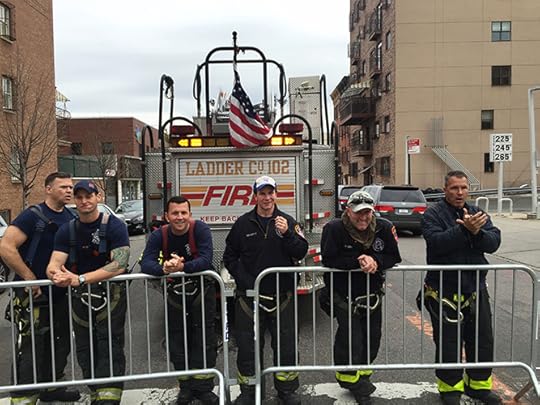
View Larger Image
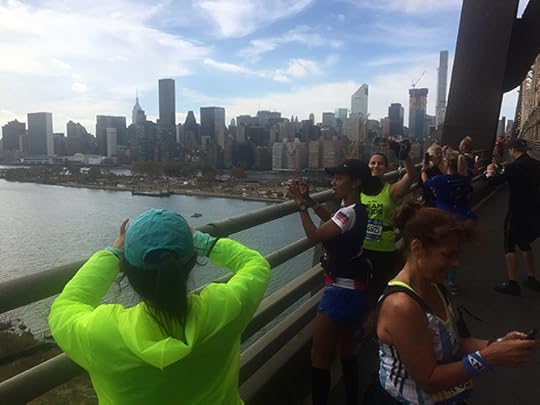
View Larger Image
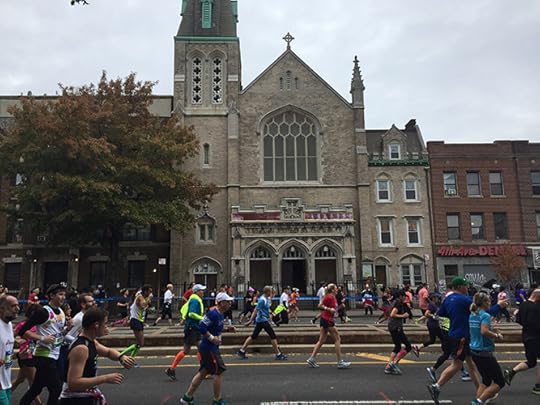
View Larger Image

View Larger Image

View Larger Image

View Larger Image

Manhattan
View Larger Image

More signs.
View Larger Image
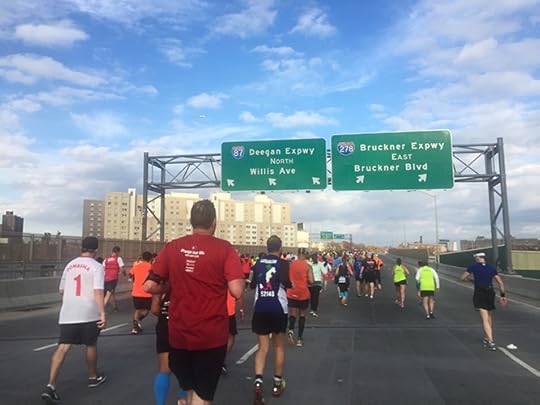
The Bronx.
View Larger Image

View Larger Image
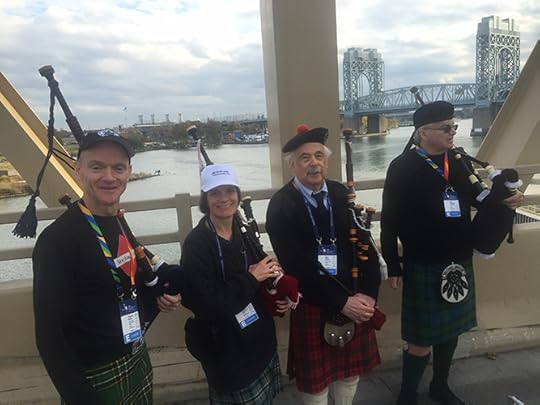
View Larger Image

View Larger Image
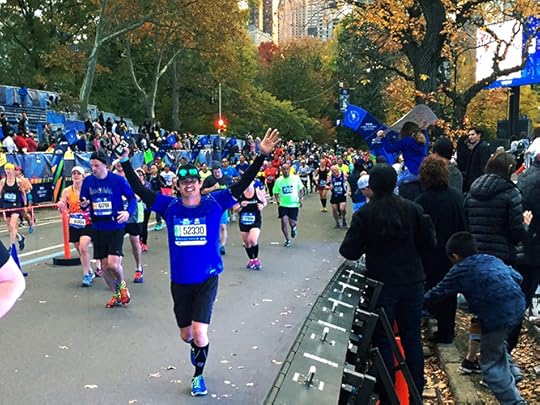
Steve Godwin, crossing the finish line.
Related Galleries
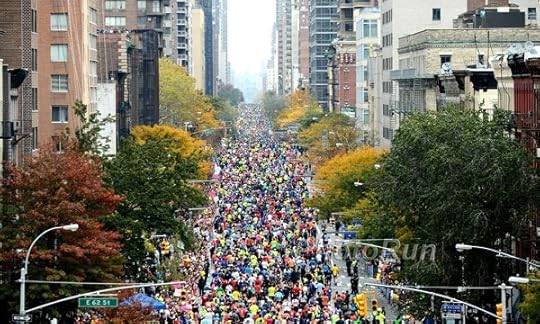
Photos: 2015 New York City Marathon
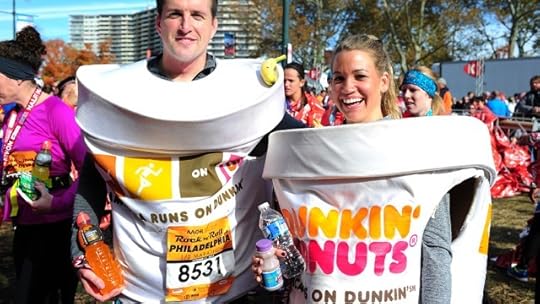
Photos: 2015 AACR Rock ‘n’ Roll Philadelphia Half Marathon
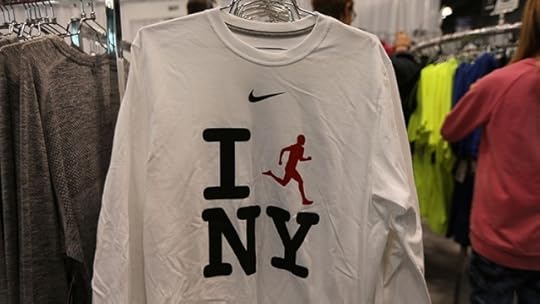
Photos: 2015 New York City Marathon T-Shirts We Love
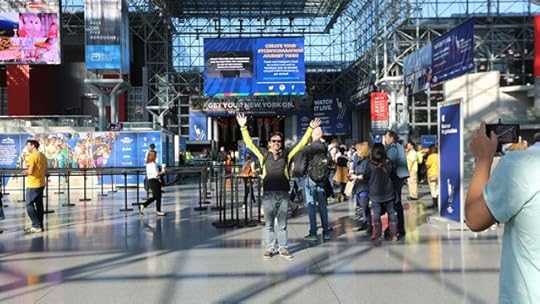
Photos: Inside the New York City Marathon Expo

More Galleries
The post Photos: Inside the New York City Marathon appeared first on Competitor.com.
Photos: Best Halloween Costumes From the Healdsburg Wine Country Half Marathon
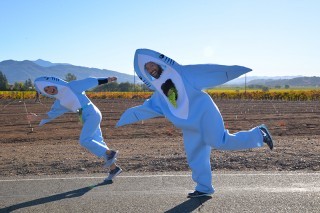
Although several races took place on Halloween with plenty of clever, wacky, spooky, and fun costumes, not many ran through a vineyard with wine-tasting stations and creative costumes like the Healdsburg Wine Country Half Marathon in northern California. Marking the end of autumn wine harvest, this Halloween-themed race passes through two dozen wineries along the course, starting at Virginia Dare Winery and finishing on the Trentadue Winery grounds for a post-race wine and music festival. From cruising shark pairs to a very Grouch-y individual, here are the best Halloween costumes from this year’s race:
Photo Gallery
1 of {count}
Back to Start
View Larger Image
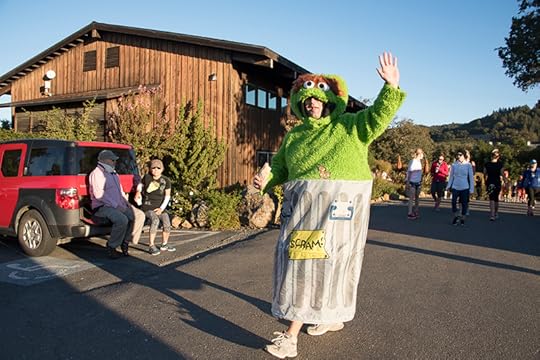
2015 Healdsburg Wine Country Half Marathon
Oscar the Grouch shows his friendlier side on the course. Must be the runner's high. Photo: Barbara Schwartz
View Larger Image
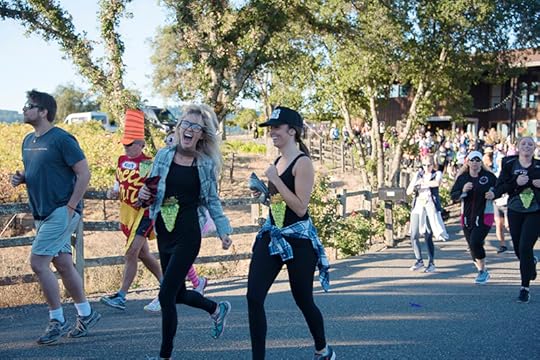
2015 Healdsburg Wine Country Half Marathon
Wayne and Garth make a rockin' appearance. But more importantly, can you spot the can of cheez whiz? Photo: Barbara Schwartz
View Larger Image
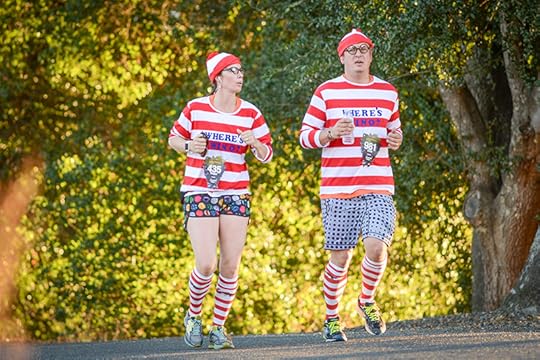
2015 Healdsburg Wine Country Half Marathon
Meet The Winos, Waldo's less elusive and more vinous relatives. Photo: Lucid Images
View Larger Image
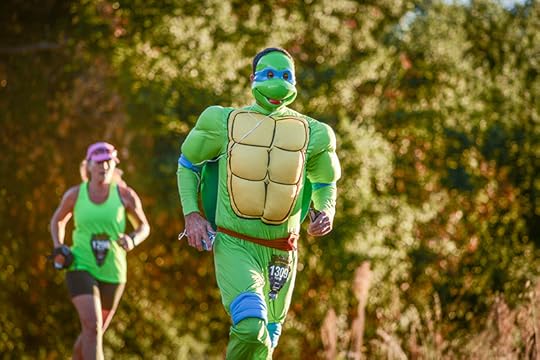
2015 Healdsburg Wine Country Half Marathon
Slow and steady wins the race, unless you're a teenage ninja mutant turtle! Photo: Lucid Images
View Larger Image

2015 Healdsburg Wine Country Half Marathon
Perhaps some cheese to go with your wine? Photo: Lucid Images
View Larger Image
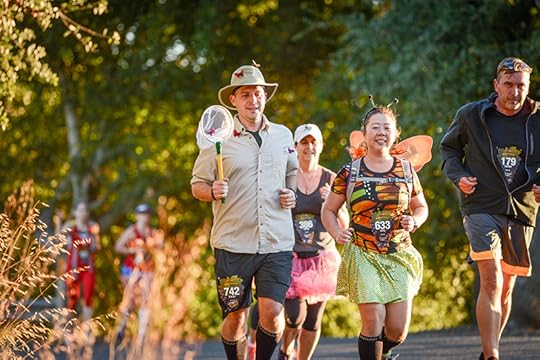
2015 Healdsburg Wine Country Half Marathon
A butterfly catcher and his butterfly. Photo: Lucid Images
View Larger Image
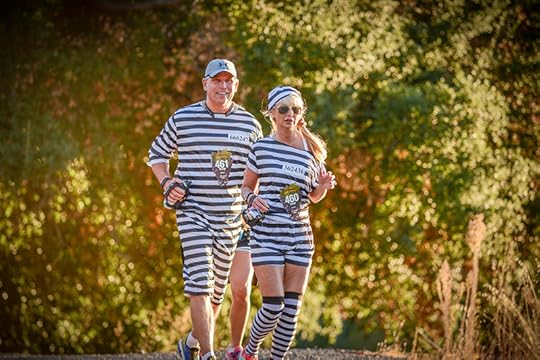
2015 Healdsburg Wine Country Half Marathon
This runaway crime duo make a dash to the finish. Photo: Lucid Images
View Larger Image
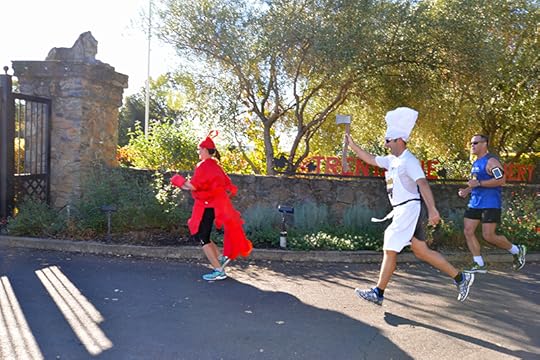
2015 Healdsburg Wine Country Half Marathon
A reenactment from the Little Mermaid when Chef Louis chases after Sebastian. Photo: TJ Nelson
View Larger Image
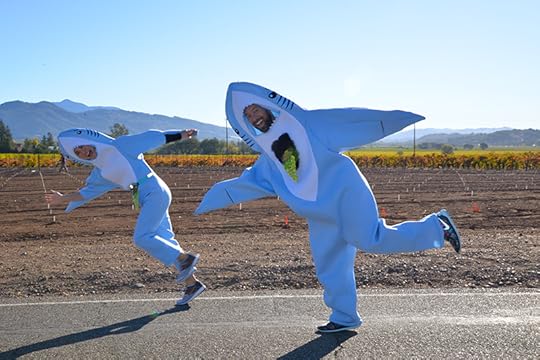
2015 Healdsburg Wine Country Half Marathon
The synchronized shark swim team bust some moves on the course. Photo: TJ Nelson
View Larger Image
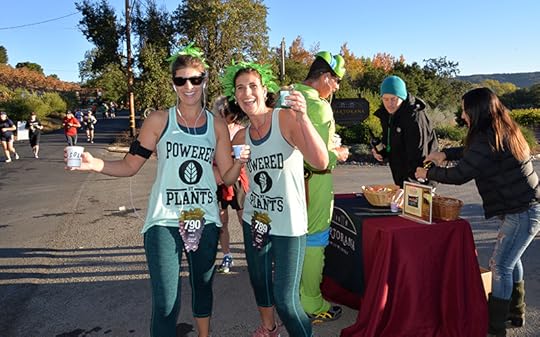
2015 Healdsburg Wine Country Half Marathon
These plants have cleverly utilized their race bib as part of their costume. Photo: TJ Nelson
View Larger Image
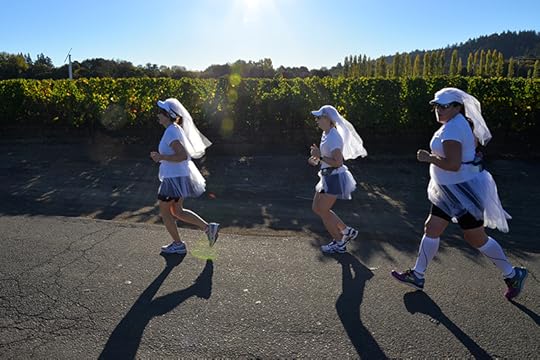
2015 Healdsburg Wine Country Half Marathon
These runaway brides are too swift to be caught. Photo: TJ Nelson
View Larger Image
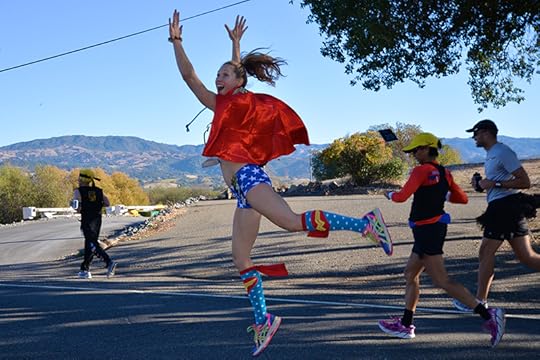
2015 Healdsburg Wine Country Half Marathon
Wonder Woman didn't just run the course, she flew! Photo: TJ Nelson
View Larger Image
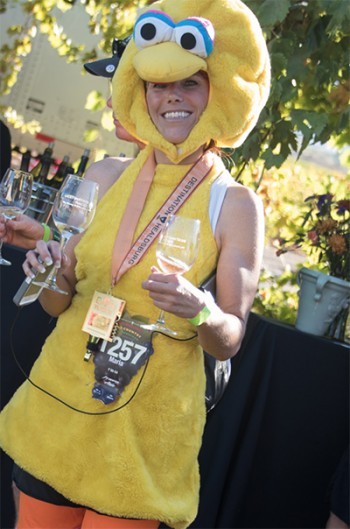
2015 Healdsburg Wine Country Half Marathon
All that counting, singing the alphabet and running deserves a big glass of wine for the biggest bird of them all at the post-race wine and music festival. Photo: Barbara Schwartz
View Larger Image
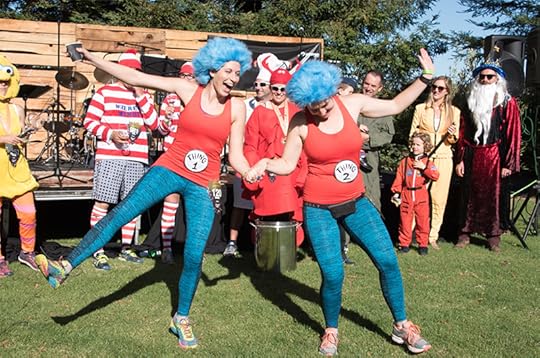
2015 Healdsburg Wine Country Half Marathon
You can always count on Thing 1 and Thing 2 to perform a little jig at the post-race costume contest.

More Galleries
The post Photos: Best Halloween Costumes From the Healdsburg Wine Country Half Marathon appeared first on Competitor.com.
A New Way for Runners to Wear a Watch?

This piece first appeared on Women’s Running.
The wristwatch was developed in the late 1500s and though there are many options on the market—including those specifically for sport—the core design hasn’t ever changed.
The use of the watch, however, has changed greatly.
Now you use your watch to track steps, send text messages, track runs, control your music and more. When running, having to keep turning your wrist can get you out of your groove and mess with proper running mechanics.
EdgeGear co-founders, Andrew Green and James Gilmore, asked if the watch were invented today, where would the ideal location be? Their answer was SHIFT, the first watchband of its kind that shifts the placement of the smartwatch to a different part of your arm, making it easier to see when you are in action. It moves your watch to the space under your thumb and above your wrist, so that you no longer have to turn your arm to view your stats.
The SHIFT watchband is compatible with many fitness and smartwatches, including Apple, Pebble, Garmin and more. This new placement creates a better viewing angle so you can quickly monitor and interact with information in a safer and easier way on the run.
You can back this watchband on Kickstarter—or can be preordered at getedgegear.com.
The post A New Way for Runners to Wear a Watch? appeared first on Competitor.com.
Photos: 2015 New York City Marathon
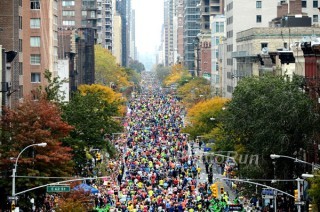
A festive day for running at the New York City Marathon, with more than 50,000 starting in Staten Island, winding through the Big Apple’s five boroughs and finishing in Central Park.
RELATED: Keitany, Biwott Take Elites to School at New York City Marathon
RELATED: 2015 New York City Marathon Top 10 Results
Here are photos from the day, taken by PhotoRun.net:
Photo Gallery
1 of {count}
Back to Start
View Larger Image
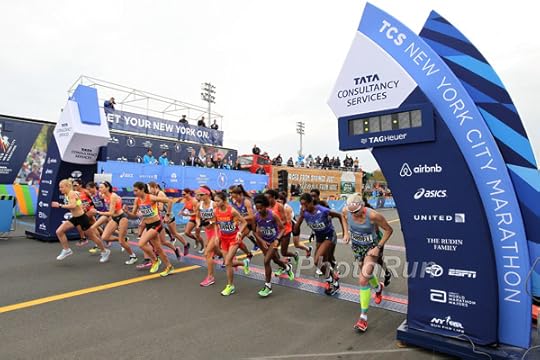
The elite women's start.
View Larger Image
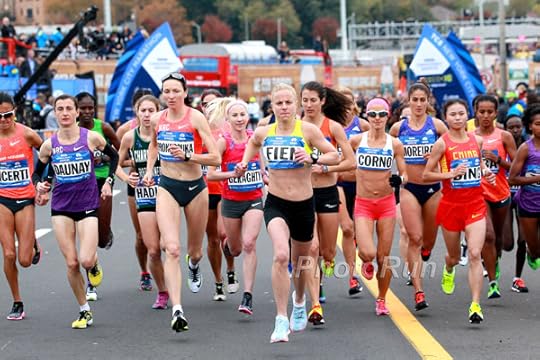
View Larger Image
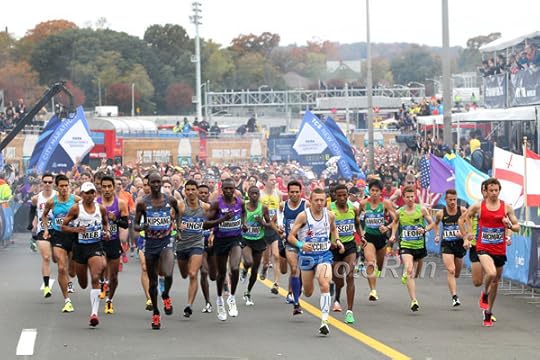
The elite men's start
View Larger Image
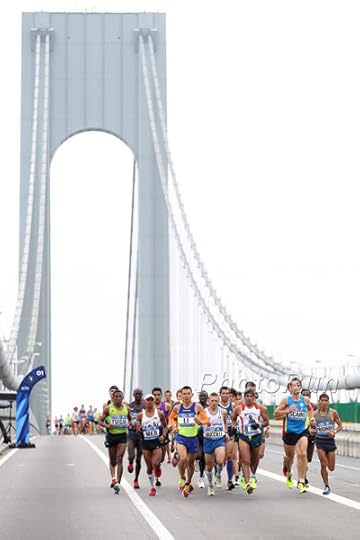
The elite men on the Verrazano Narrows Bridge, leaving Staten Island.
View Larger Image
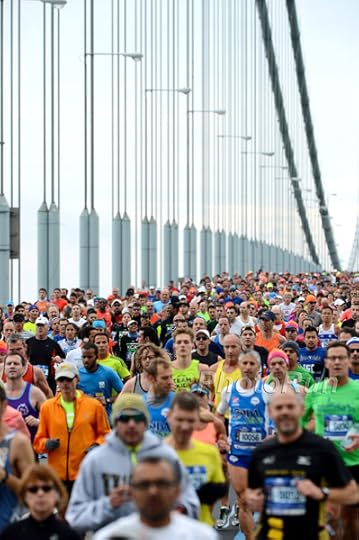
Runners on the bridge.
View Larger Image
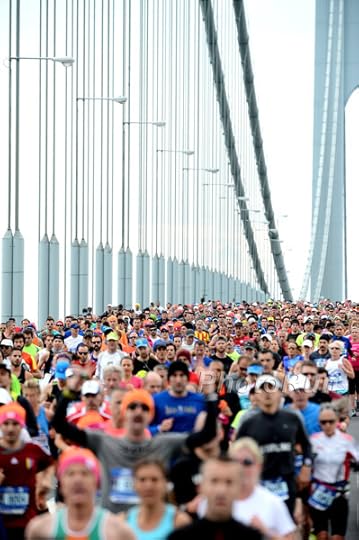
Runners on the bridge.
View Larger Image
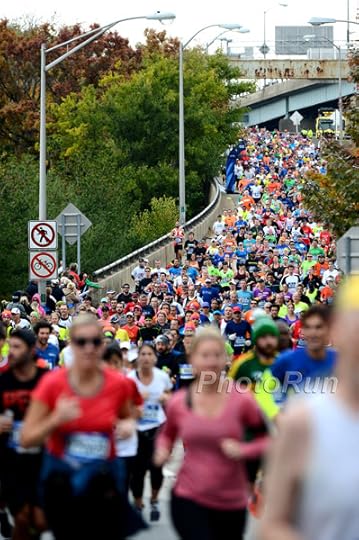
Runners exiting the bridge into Brooklyn.
View Larger Image
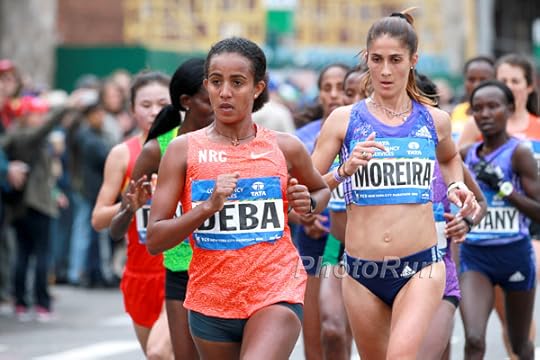
View Larger Image
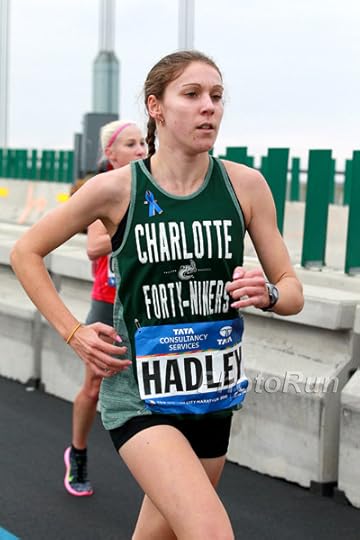
Alana Hadley, 18, was forced to withdraw at 15 miles.
View Larger Image
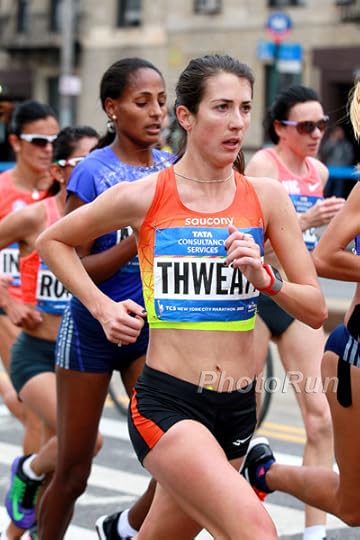
Laura Thweatt was the top American, finishing seventh in 2:28:23.
View Larger Image
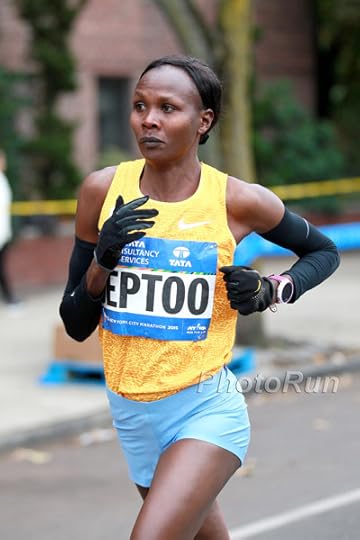
Priscah Jeptoo of Kenya finished sixth in 2:27:03.
View Larger Image
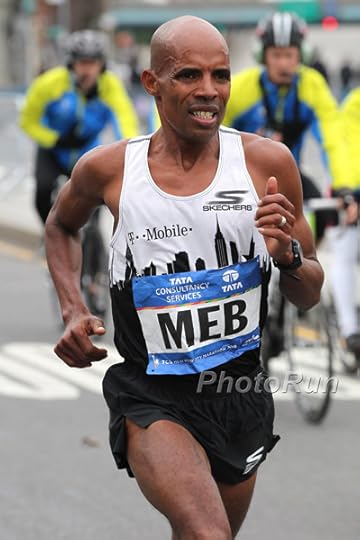
Meb Keflezighi stayed with the lead pack most of the day, but finished seventh in 2:13:32. He set the U.S. Masters marathon record.
View Larger Image
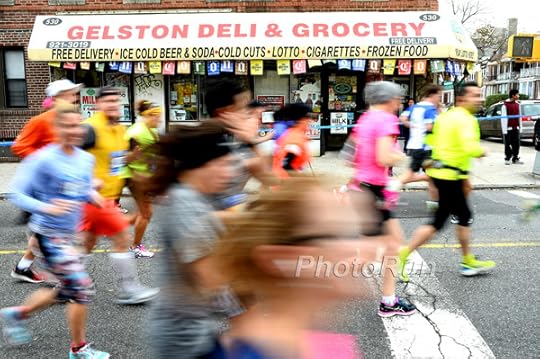
Runners in Brooklyn.
View Larger Image
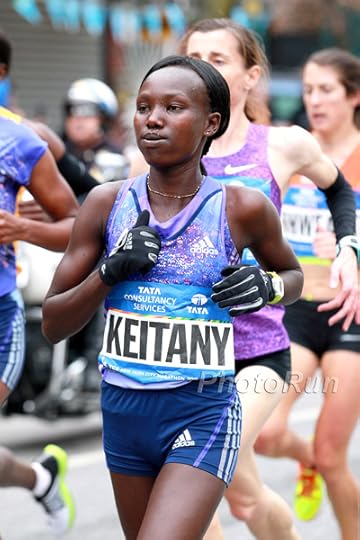
Defending champion Mary Keitany was back to defend her title.
View Larger Image
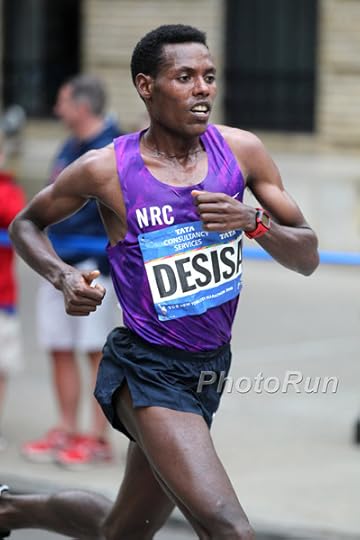
Lelisa Desisa of Ethiopia, who won the Boston Marathon in April, was a contender again this year after finishing second last year.
View Larger Image
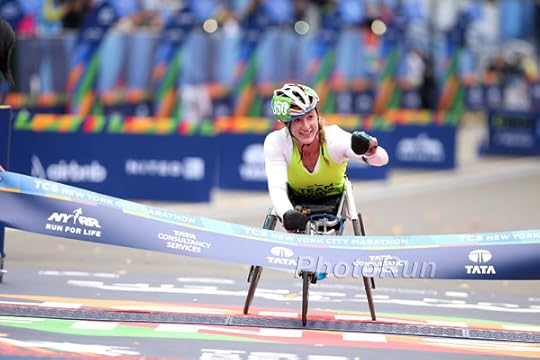
Tatyana McFadden continued her dominance, winning the wheelchair division by a wide margin.
View Larger Image
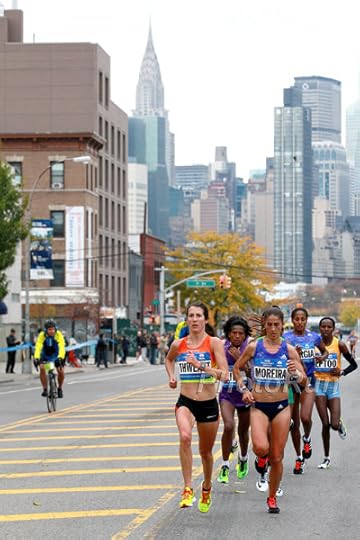
Laura Thweatt briefly led.
View Larger Image
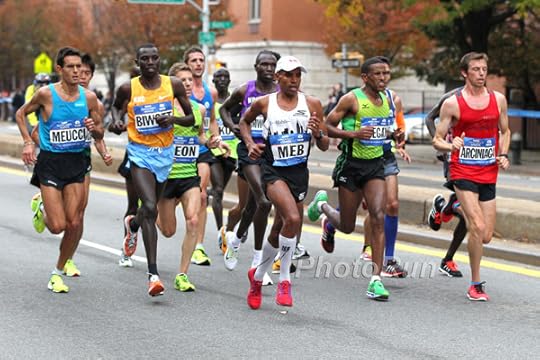
The men's pack, with Meb Keflezighi in front briefly.
View Larger Image
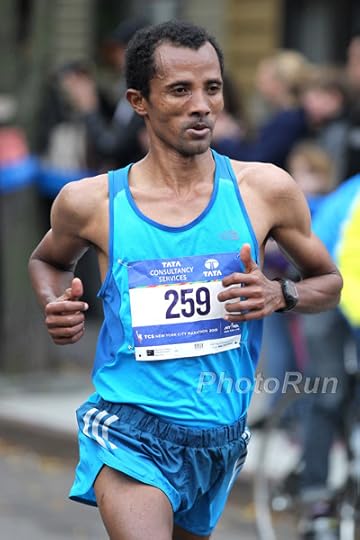
Birhanu Dare stayed with the lead pack for much of the day and finished ninth in 2:15:40.
View Larger Image
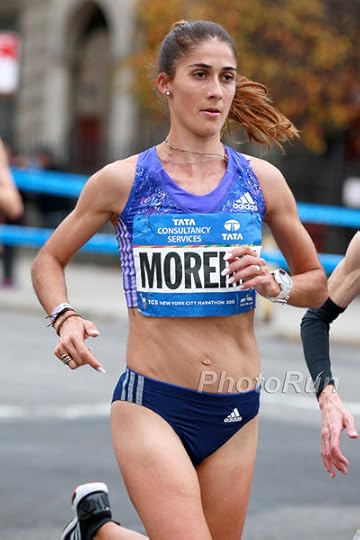
Sara Moreira of Portugal led the pack for much of the race before finishing fourth in 2:25:53.
View Larger Image
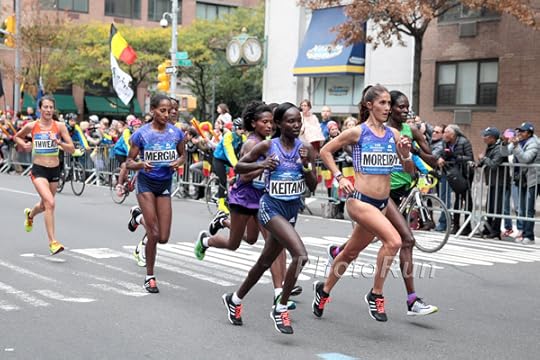
The elite women in Manhattan.
View Larger Image
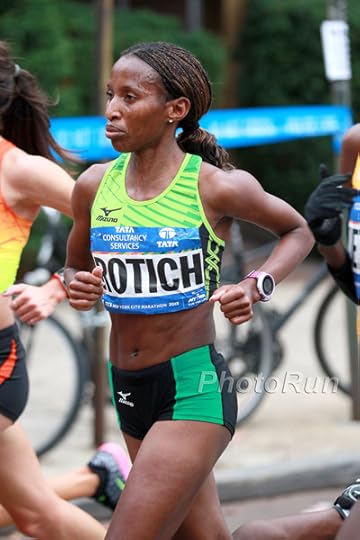
Caroline Rotich won the Boston Marathon in April, but finished 10th in 2:33:19 in New York.
View Larger Image
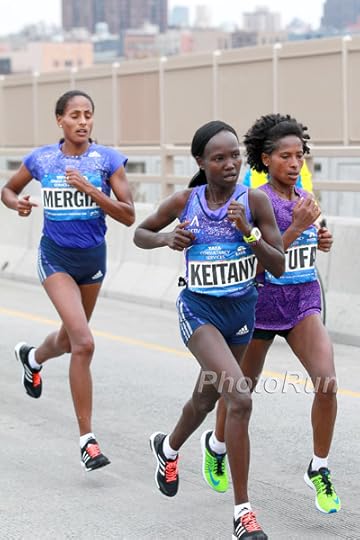
The women's lead pack whittled down to three, with Keitany leading the charge.
View Larger Image

The men's field quickly was down to three—Geoffrey Kamworor, Lelisa Desisa and Stanley Biwott.
View Larger Image
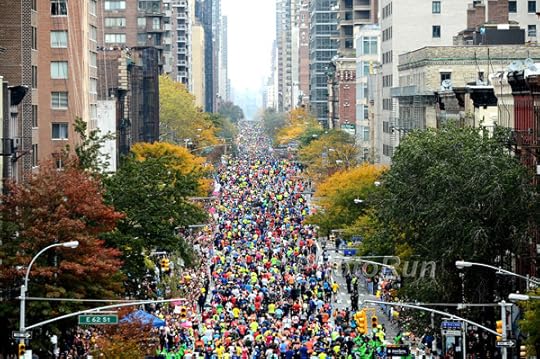
The masses on First Avenue in Manhattan.
View Larger Image
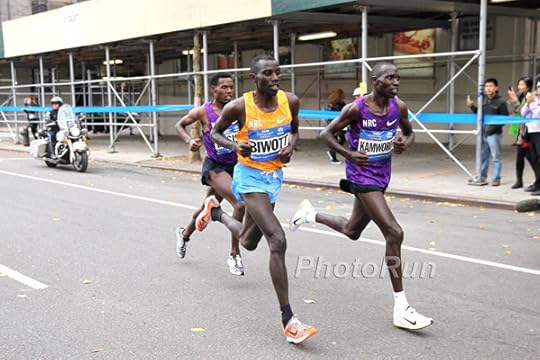
Biwott, Kamworor and Desisa broke away.
View Larger Image
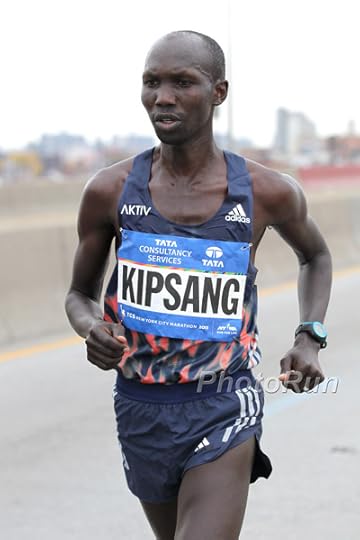
Wilson Kipsang, last year's winner, faded and finished fourth in 2:12:45.
View Larger Image
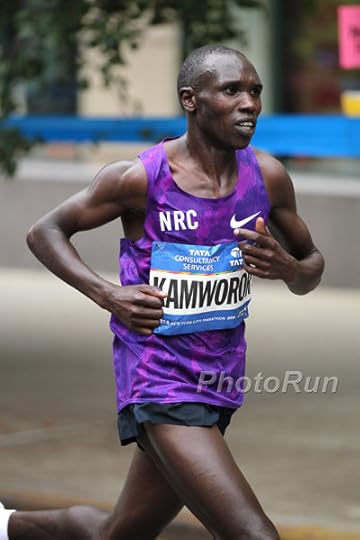
Geoffery Kamworor, just 22, finished second in 2:10:48.
View Larger Image

Craig Leon of the U.S. had a good day, finishing 8th in 2:15:16.
View Larger Image
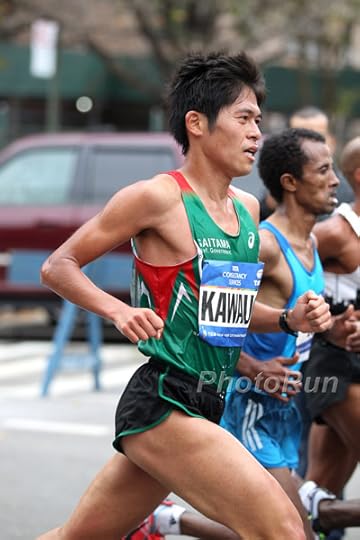
Yuki Kawauchi, a serial marathoner from Japan, finished sixth in 2:13:29.
View Larger Image
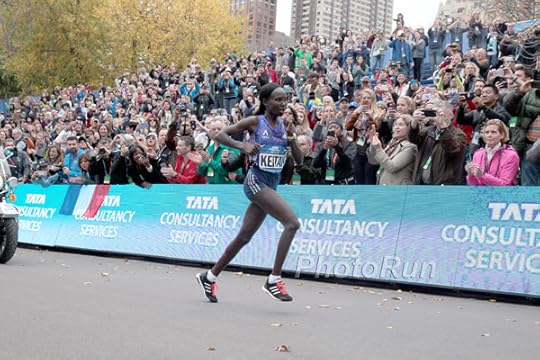
Mary Keitany pulled away and won by more than a minute.
View Larger Image
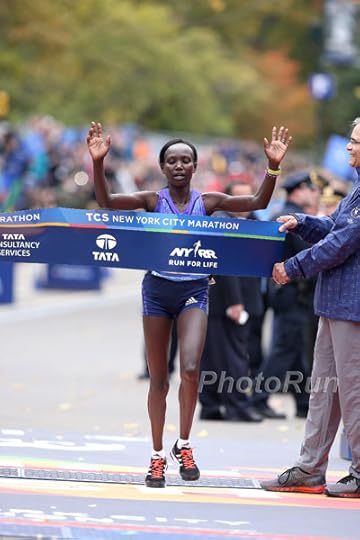
Keitany crossed in 2:24:25.
View Larger Image
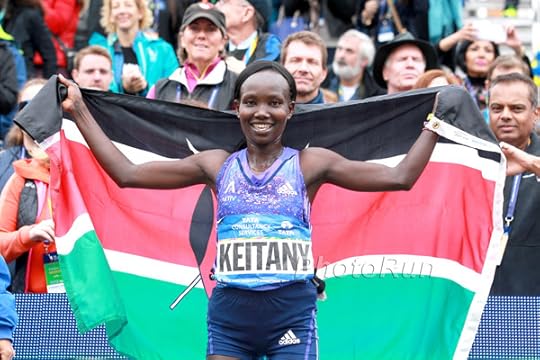
It was her second straight victory in New York.
View Larger Image
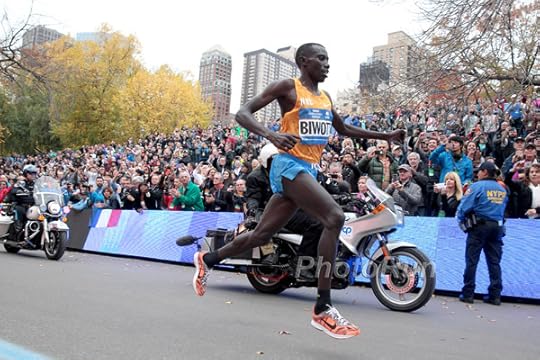
Stanley Biwott eventually pulled away.
View Larger Image
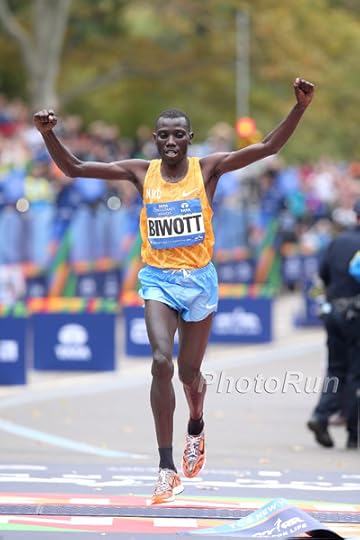
Biwott won in 2:10:34.
View Larger Image
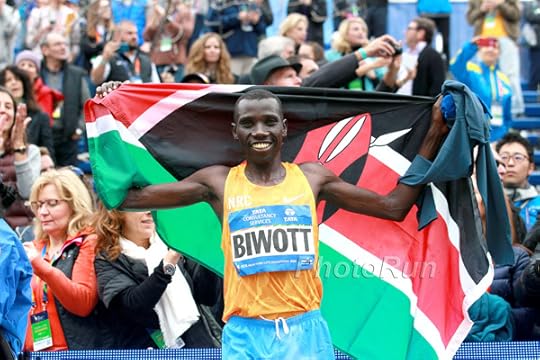
View Larger Image

The winners, both from Kenya, celebrating.
View Larger Image
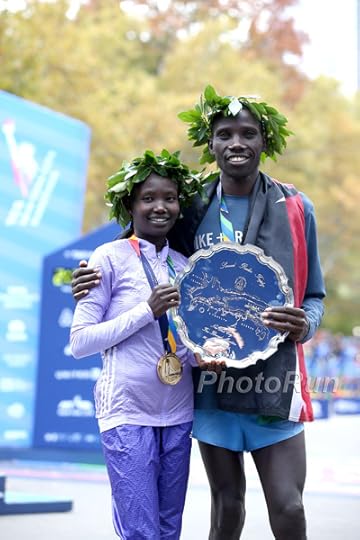
View Larger Image
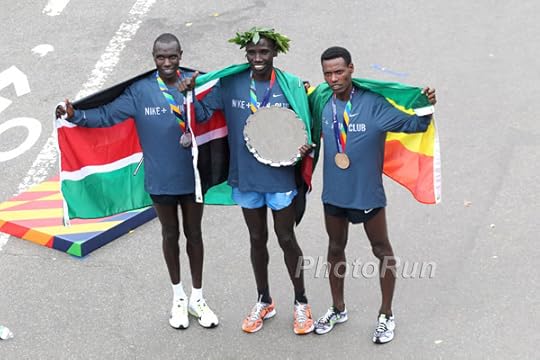
The men's top three.
View Larger Image
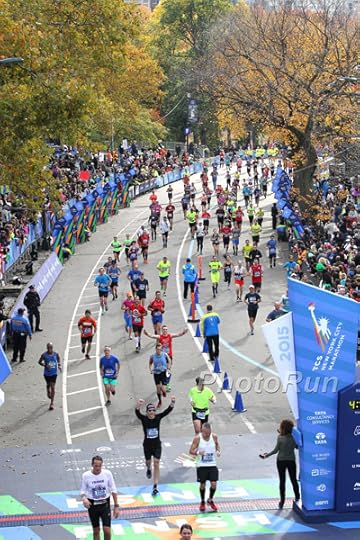
The runners wrapping up their race.
View Larger Image
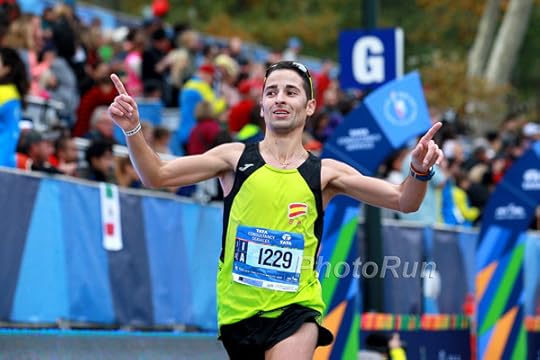
View Larger Image
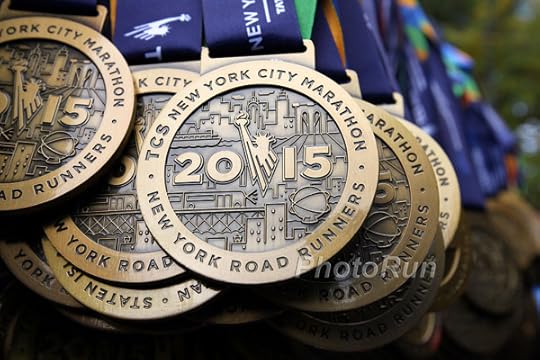
View Larger Image
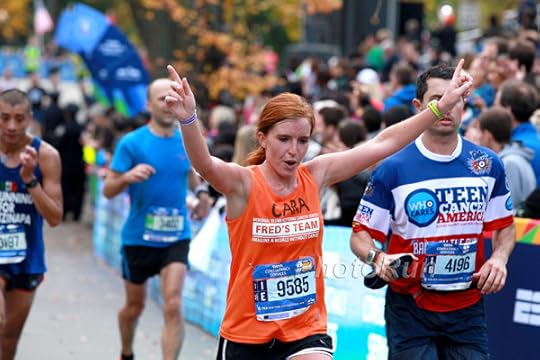
View Larger Image
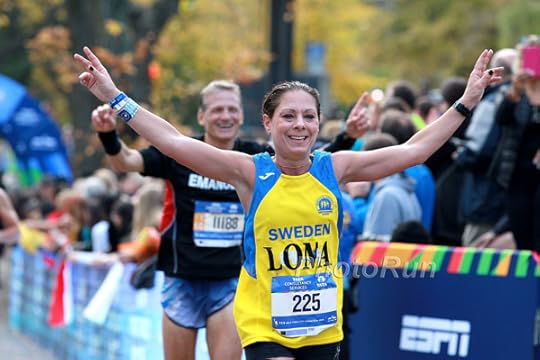
View Larger Image
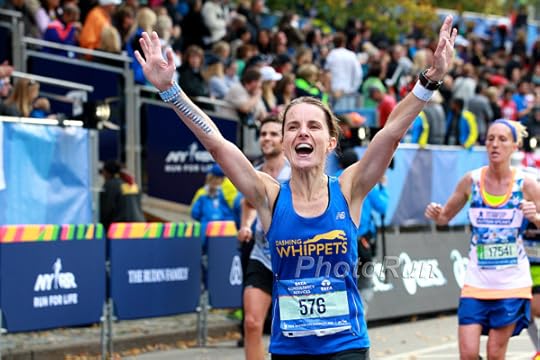
View Larger Image
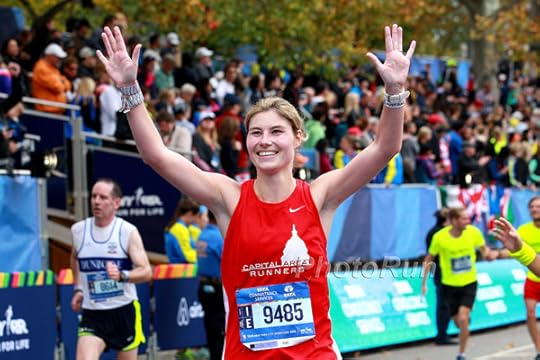
View Larger Image
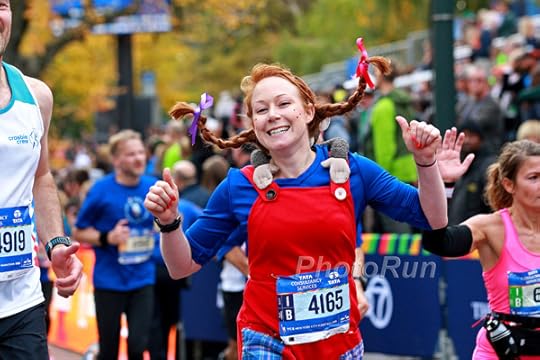
View Larger Image
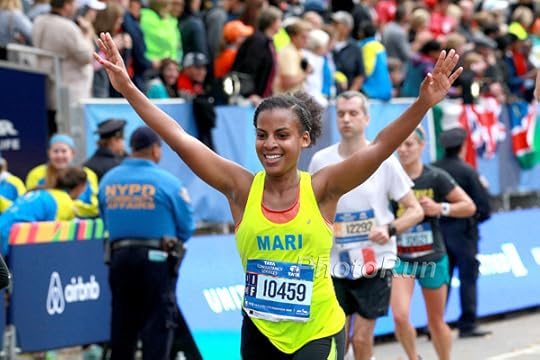
View Larger Image
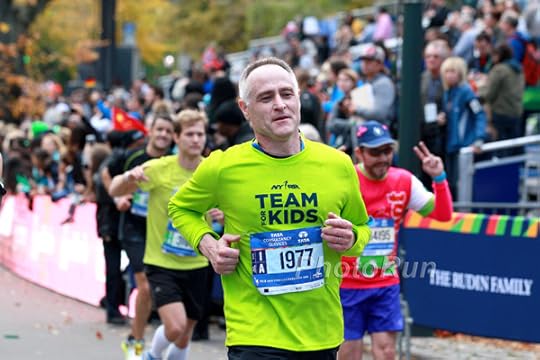
View Larger Image
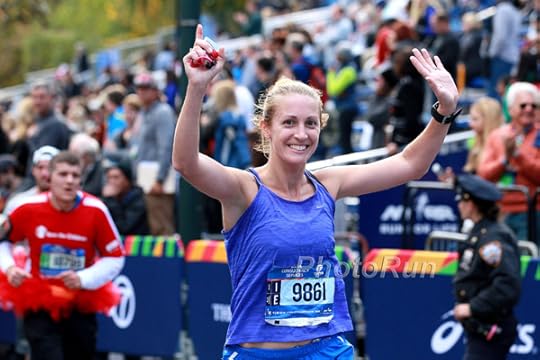
View Larger Image
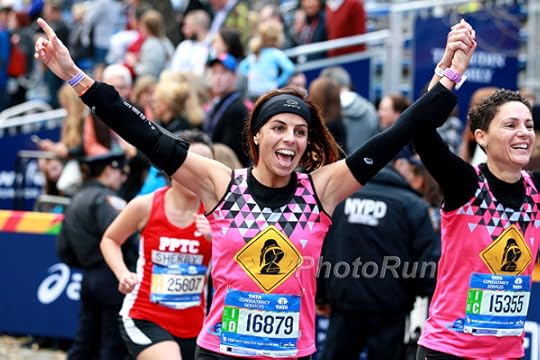
Related Galleries
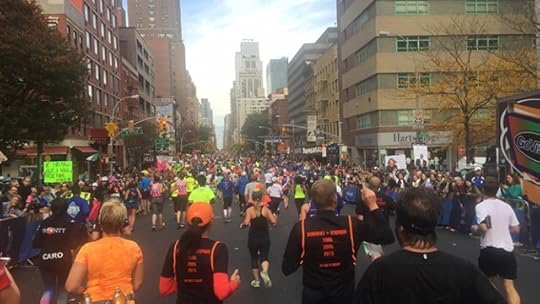
Photos: Inside the New York City Marathon

Photos: 2015 AACR Rock ‘n’ Roll Philadelphia Half Marathon

Photos: 2015 New York City Marathon T-Shirts We Love

Photos: Inside the New York City Marathon Expo

More Galleries
The post Photos: 2015 New York City Marathon appeared first on Competitor.com.
November 1, 2015
Keitany, Biwott Take Elites to School at New York City Marathon
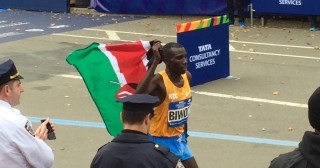
Stanley Biwott celebrates with the Kenyan flag just after winning the 2015 New York City Marathon. Photo: Sarah A. Swiss
NEW YORK—Kenyans Mary Keitany and Stanley Biwott turned the 2015 TCS New York City Marathon into a five-borough classroom on Sunday, showing the elite runner fields and the rest of the world how to produce 26.2-mile masterpieces.
Both were almost invisible in big packs that stayed watchfully together through halfway, but chose their moments to perfection to finish alone. Keitany won in 2:24:25 after a halfway split of 1:12:56, Biwott’s finish was 2:10:34 after a half in 1:06:47. The math says it all.
The crucial moment came a little sooner for Keitany than Biwott. She surged at 30K, arms pumping high across her diminutive frame, and instantly blew apart a group of six. Tigist Tufa (Ethiopia), who surprisingly beat Keitany to the win the 2015 London Marathon in April, stuck closely with her for awhile. She stuck almost too close, as Keitany turned and snarled at her for jostling as they ran side by side through the Bronx.
“When I made my move around 30K, I say, OK, let me just go, and if somebody is more strong, she can come, and we can go. I was ready to go with her, but fortunately they never got me. I was feeling OK,” Keitany said after the race. Last week, she told Competitor that she was determined not to repeat the mistake she made here in 2011, when she went out crazy fast and lost a huge halfway lead.
This time, Keitany had it all under control and soon had all the space she needed. Tufa tightened and drifted back, and the once-fearsome Kenyan Priscah Jeptoo was also history. Ethiopian Aselefech Mergia eventually came through for second, but Keitany was alone and away, relentlessly piling the yards on to her lead. Even on the testing hills through Central Park, she was running at 5:13-5:18 mile pace, and finished, seemingly with strength in reserve, 66 seconds in the clear.
RELATED: Top 10 Finishers at 2015 NYC Marathon
It was a supremely efficient racing performance by Keitany, who has made her mistakes in the past, but with Paula Radcliffe now retired, she is arguably the best woman now racing. She is the second fastest in marathon history to Radcliffe with 2:18:37, and today won her third major marathon (London 2012, New York City 2014). Disposing of Tufa will have seemed especially sweet, as Keitany seemed less than happy after that race with the unexpected reverse in fortune.
Biwott’s record has been one of impressive near misses—a second and a fourth in London, and fifth in New York in 2013. His only win was Paris in 2012. Taller than most Kenyans, he sometimes looks too big and lolloping as he looms above the lead pack, but when the action started today, he was flowing.
“During my previous marathons I was not able to run the last five kilometers at a consistent speed. So for my preparation I trained with a very good program of long runs at the full 42 kilometer distance, not 35. So I was able to have a lot of endurance speed to finish, not running slow at the end. So I was confident, and happy to be the winner, thank you,” Biwott said.
RELATED: Tenacious Tiki Barber Tackles Second NYC Marathon
Geoffrey Kamworor, the immensely promising 22-year-old Kenyan who pushed Mo Farah for the world 10,000 meters track championship in Beijing in August, was the first to break up the pack. His move came at what is becoming the traditional place in the New York City men’s race, just after 20 miles. The first major drama was that the move blew away pre-race favorite and defending champion Wilson Kipsang. There was going to be a new name on the men’s trophy.
There was more drama to come. Kamworor, though light on marathon experience (best 2:06:12 in 2012), was the obvious threat and at first seemed in command. He has high credentials in track (silver medal, world 10,000 championship 2015), cross country (world champion, 2015) and in the half marathon (world champion 2014, and a best of 58:54). That could have added up to a phenomenal first serious marathon.
Kamworor was thinking the same.
“When I decided to make a move, I knew I was feeling strong, and I was feeling OK. I knew I could make it all the way to the finish,” Kamworor said.
But the gap we were watching for never came. Biwott and Lelisa Desisa kept it tight. Desisa, who narrowly lost here to Kipsang last year, and is a double Boston champion (2013, 2015), was the first to lose his grip. Up the long gradual slope on the 24th mile along Fifth Avenue, it was Biwott who edged in front. Kamworor frowned. Desisa disappeared. Entering Central Park, there was daylight between Biwott and Kamworor, and very slowly it increased.
Biwott’s endurance training miles paid off, and he never faltered. His lead had grown to fourteen seconds at the tape.
Notable among the top 10 finishers was the Japanese “Citizen Runner” Yuki Kawauchi, who gave Japan one of its best recent placings in sixth place, one ahead of Meb Keflizighi.
RELATED: Meb Keflezighi Sets U.S. Masters Marathon Record
There were plenty of lessons for all citizen runners in New York today. Judge it right, run negative splits, and watch for the moment to make the break. But making the break is only half the battle, so Keitany and Biwott both proved. Then you have to keep it, nurture it, and make it last, all the way.
The post Keitany, Biwott Take Elites to School at New York City Marathon appeared first on Competitor.com.
Ryan Hall's Blog
- Ryan Hall's profile
- 21 followers



